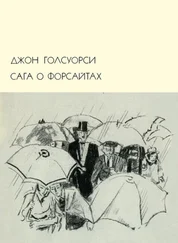Джон Голсуорси - Swan Song
Здесь есть возможность читать онлайн «Джон Голсуорси - Swan Song» весь текст электронной книги совершенно бесплатно (целиком полную версию без сокращений). В некоторых случаях можно слушать аудио, скачать через торрент в формате fb2 и присутствует краткое содержание. Жанр: Классическая проза, на английском языке. Описание произведения, (предисловие) а так же отзывы посетителей доступны на портале библиотеки ЛибКат.
- Название:Swan Song
- Автор:
- Жанр:
- Год:неизвестен
- ISBN:нет данных
- Рейтинг книги:3 / 5. Голосов: 1
-
Избранное:Добавить в избранное
- Отзывы:
-
Ваша оценка:
- 60
- 1
- 2
- 3
- 4
- 5
Swan Song: краткое содержание, описание и аннотация
Предлагаем к чтению аннотацию, описание, краткое содержание или предисловие (зависит от того, что написал сам автор книги «Swan Song»). Если вы не нашли необходимую информацию о книге — напишите в комментариях, мы постараемся отыскать её.
Swan Song — читать онлайн бесплатно полную книгу (весь текст) целиком
Ниже представлен текст книги, разбитый по страницам. Система сохранения места последней прочитанной страницы, позволяет с удобством читать онлайн бесплатно книгу «Swan Song», без необходимости каждый раз заново искать на чём Вы остановились. Поставьте закладку, и сможете в любой момент перейти на страницу, на которой закончили чтение.
Интервал:
Закладка:
“Is that you, Imogen? Are you and Jack coming for me this evening?”
“No, Mother. Jack’s sworn in, of course. He has to be on duty at five. Besides, they say the theatres will close. We’ll go later. ‘Dat Lubly Lady’s’ sure to run.”
“Very well, dear. But what a fuss it all is! How are the boys?”
“Awfully fit. They’re both going to be little ‘specials.’ I’ve made them tiny badges. D’you think the child’s department at Harridge’s would have toy truncheons?”
“Sure to, if it goes on. I shall be there today; I’ll suggest it. They’d look too sweet, wouldn’t they? Are you all right for coal?”
“Oh, yes. Jack says we mustn’t hoard. He’s fearfully patriotic.”
“Well, good-bye, dear! My love to the boys!”
She had just begun to consider whom she should call up next when the telephone bell rang.
“Yes?”
“Mr. Val Dartie living there?”
“No. Who is it speaking?”
“My name is Stainford. I’m an old college friend of his. Could you give me his address, please?”
Stainford? It conveyed nothing.
“I’m his mother. My son is not in town; but I dare say he will be before long. Can I give him any message?”
“Well, thanks! I want to see him. I’ll ring up again; or take my chance later. Thanks!”
Winifred replaced the receiver.
Stainford! The voice was distinguished. She hoped it had nothing to do with money. Odd, how often distinction was connected with money! Or, rather, with the lack of it. In the old Park Lane days they had known so many fashionables who had ended in the bankruptcy or divorce courts. Emily—her mother—had never been able to resist distinction. That had been the beginning of Monty—he had worn such perfect waistcoats and gardenias, and had known so much about all that was fast—impossible not to be impressed by him. Ah, well! She did not regret him now. Without him she would never have had Val, or Imogen’s two boys, or Benedict (almost a colonel), though she never saw him now, living, as he did, in Guernsey, to grow cucumbers, away from the income tax. They might say what they liked about the age, but could it really be more up-to-date than it was in the ‘nineties and the early years of the century, when income tax was at a shilling, and that considered high! People now just ran about and talked, to disguise the fact that they were not so ‘chic’ and up-to-date as they used to be.
Again the telephone bell rang. “Will you take a trunk call from Wansdon?…”
“Hallo! That you, Mother?”
“Oh, Val, how nice! Isn’t this strike absurd?”
“Silly asses! I say: we’re coming up.”
“Really, dear. But why? You’ll be so much more comfortable in the country.”
“Holly says we’ve got to do things. Who d’you think turned up last night? – her brother—young Jon Forsyte. Left his wife and mother in Paris—said he’d missed the war and couldn’t afford to miss this. Been travelling all the winter—Egypt, Italy, and that—chucked America, I gather. Says he wants to do something dirty—going to stoke an engine. We’re driving up to the Bristol this afternoon.”
“Oh, but why not come to me, dear, I’ve got plenty of everything?”
“Well, there’s young Jon—I don’t think—”
“But he’s a nice boy, isn’t he?”
“Uncle Soames isn’t with you, is he?”
“No, dear. He’s at Mapledurham. Oh, and by the way, Val, someone has just rung up for you—a Mr. Stainford.”
“Stainford? What! Aubrey Stainford—I haven’t seen him since Oxford.”
“He said he would ring up again or take his chance of finding you here.”
“Oh, I’d love to see old Stainford again. Well, if you don’t mind putting us up, Mother. Can’t leave young Jon out, you know—he and Holly are very thick after six years; but I expect he’ll be out all the time.”
“Oh, that’ll be quite all right, dear; and how is Holly?”
“Topping.”
“And the horses?”
“All right. I’ve got a snorting two-year-old, rather backward. Shan’t run him till Goodwood, but he ought to win then.”
“That’ll be delightful. Well, dear boy, I’ll expect you. But you won’t be doing anything rash, with your leg?”
“No; just drive a ‘bus, perhaps. Won’t last, you know. The Government’s all ready. Pretty hot stuff. We’ve GOT ’em this time.”
“I’m so glad. It’ll be such a good thing to have it over; it’s dreadfully bad for the season. Your uncle will be very upset.”
An indistinguishable sound; then Val’s voice again:
“I say, Holly says SHE’LL want a job—you might ask young Mont. He’s in with people. See you soon, then—good-bye!”
Replacing the receiver, Winifred had scarcely risen from the satinwood chair on which she had been seated, when the bell rang again.
“Mrs. Dartie?… That you, Winifred? Soames speaking. What did I tell you?”
“Yes; it’s very annoying, dear. But Val says it’ll soon be over.”
“What’s he know about it?”
“He’s very shrewd.”
“Shrewd? H’m! I’m coming up to Fleur’s.”
“But, why, Soames? I should have thought—”
“Must be on the spot, in case of—accidents. Besides, the car’ll be eating its head off down here—may as well be useful. Do that fellow Riggs good to be sworn in. This thing may lead to anything.”
“Oh! Do you think—”
“Think? It’s no joke. Comes of playing about with subsidies.”
“But you told me last summer—”
“They don’t look ahead. They’ve got no more nous than a tom-cat. Annette wants to go to her mother’s in France. I shan’t stop her. She can’t gad about while this is on. I shall take her to Dover with the car today, and come up tomorrow.”
“Ought one to sell anything, Soames?”
“Certainly not.”
“People seem dreadfully busy about it all. Val’s going to drive a ‘bus. Oh! and, Soames—that young Jon Forsyte is back. He’s left his wife and mother in Paris, and come over to be a stoker.”
A deep sound, and then:
“What’s he want to do that for? Much better keep out of England.”
“Ye-es. I suppose Fleur—”
“Don’t you go putting things into HER head!”
“Of course not, Soames. So I shall see you? Good-bye.”
Dear Soames was always so fussy about Fleur! Young Jon Forsyte and she—of course—but that was ages ago! Calf love! And Winifred smiled, sitting very still. This strike was really most ‘intriguing.’ So long as they didn’t break any windows—because, of course, the milk supply would be all right, the Government always saw to that; and as to the newspapers—well, after all, they were a luxury! It would be very nice to have Val and Holly. The strike was really something to talk about; there had been nothing so exciting since the war. And, obeying an obscure instinct to do something about it, Winifred again took up the receiver. “Give me Westminster 0000… Is that Mrs. Michael Mont’s? Fleur? Aunt Winifred speaking. How are you, dear?”
The voice which answered had that quick little way of shaping words that was so amusing to Winifred, who in her youth had perfected a drawl, which effectually dominated both speed and emotion. All the young women in Society nowadays spoke like Fleur, as if they had found the old way of speaking English slow and flat, and were gingering it with little pinches.
“Perfectly all right, thanks. Anything I can do for you, Auntie?”
“Yes, my dear—your cousin Val and Holly are coming up to me about this strike. And Holly—I think it’s very unnecessary, but she wants to DO something. She thought perhaps Michael would know—”
“Oh, well, of course there are lots of things. We’ve started a canteen for railway workers; perhaps she’d like to help in that.”
Читать дальшеИнтервал:
Закладка:
Похожие книги на «Swan Song»
Представляем Вашему вниманию похожие книги на «Swan Song» списком для выбора. Мы отобрали схожую по названию и смыслу литературу в надежде предоставить читателям больше вариантов отыскать новые, интересные, ещё непрочитанные произведения.
Обсуждение, отзывы о книге «Swan Song» и просто собственные мнения читателей. Оставьте ваши комментарии, напишите, что Вы думаете о произведении, его смысле или главных героях. Укажите что конкретно понравилось, а что нет, и почему Вы так считаете.











